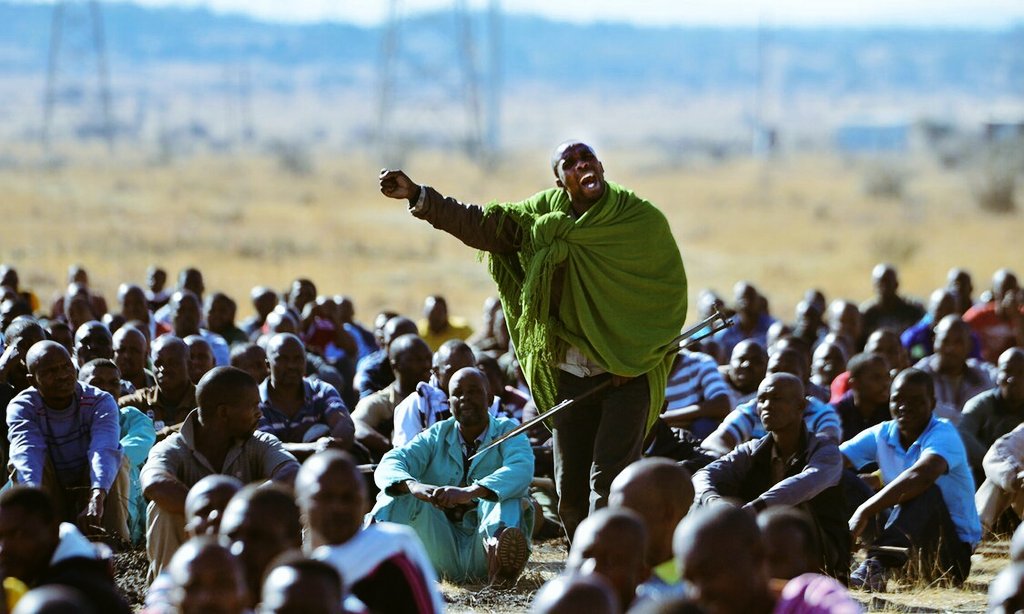z_Uncategorised
13 Years On, NPA Revives Marikana Massacre Case Against Police Officers

Families say justice has been delayed for too long.
More than a decade after the country’s most painful post-apartheid tragedy, the Marikana Massacre is once again heading to court. The National Prosecuting Authority (NPA) confirmed that it will reinstate charges against police officers previously acquitted in cases linked to the killings.
The decision comes after years of criticism that the state has failed to deliver justice for the 34 mineworkers gunned down by police in August 2012 during a wage strike at Lonmin Mine.
A Wound That Never Healed
For the families of those killed, each passing August is a reminder of justice delayed. “Every year we light candles, we pray, we remember, but we do not see justice,” one widow said at a recent memorial in the North West.
The Socio-Economic Rights Institute of South Africa (Seri), which has long represented survivors and families, has accused the state of dragging its feet. “Not a single police officer has been held accountable for the massacre,” Seri said, pointing out that families have been strung along with promises of appeals and inquests that never materialised.
Thirteen years on, some family members have died without seeing any resolution.
Failed Trials and Slow Justice
Only nine officers have ever faced prosecution, and even those cases ended in acquittals.
-
In 2021, former deputy provincial police commissioner William Mpembe and three others were cleared of charges over the death of mineworker Modisatsile van Wyk Sagalala, who died while shackled in a police van.
-
Six other officers were also acquitted over the deaths of three more workers: Semi Jokanisi, Thembelakhe Mati, and Pumzile Sekonyile.
The trials dragged on sporadically for years, eroded by weak evidence and fading memories. By the time the verdicts arrived, families were left with little more than unanswered questions.
NPA Pushes Restart Button
Now, the NPA says it is finally ready to push forward. Sivenathi Gunya, spokesperson for the authority’s North West office, confirmed that a formal inquest docket has been compiled and that a fresh team of senior advocates has been tasked with the case.
“The issue has been resolved. A dedicated team has been established to pursue the matter,” Gunya said, suggesting that this time, the prosecutions could go further.
Why the Delay?
The question that lingers is why it took so long. Back in 2015, the Farlam Commission of Inquiry had already concluded that the police plan to end the strike was “defective” and reckless. It specifically recommended criminal investigations into officers involved.
Yet year after year, the state cited resource constraints, legal complexities, and competing priorities. Seri’s executive director Nomzamo Zondo says those excuses no longer hold water.
“Every delay weakens the case. Every delay is another betrayal,” she said. “Justice for Marikana is not just about families, it’s about whether South Africa can hold power to account.”
A Stain on Democracy
The Marikana Massacre has been called the most politicised incident of police brutality since the dawn of democracy. For many South Africans, it symbolises the unfulfilled promises of freedom: better wages, dignity for workers, and accountability for those in power.
On social media, the announcement of the NPA’s renewed effort drew mixed reactions. Some welcomed the move as “better late than never,” while others dismissed it as “political theatre” timed for election season.
Justice Still on Trial
As the case is revived, the families of Marikana wait once again, this time with hope tempered by scepticism. They have seen inquiries, trials, and acquittals before. What they want now is closure, and the reassurance that their loved ones’ deaths were not in vain.
As one survivor put it at a recent gathering: “Marikana was not just about wages. It was about dignity. Until there is justice, that fight is not over.”
Thirteen years after Marikana, the struggle for justice continues. The NPA’s renewed prosecutions could finally bring answers or simply deepen the scars of one of South Africa’s darkest days.
{Source: IOL}
Follow Joburg ETC on Facebook, Twitter , TikTok and Instagram
For more News in Johannesburg, visit joburgetc.com















